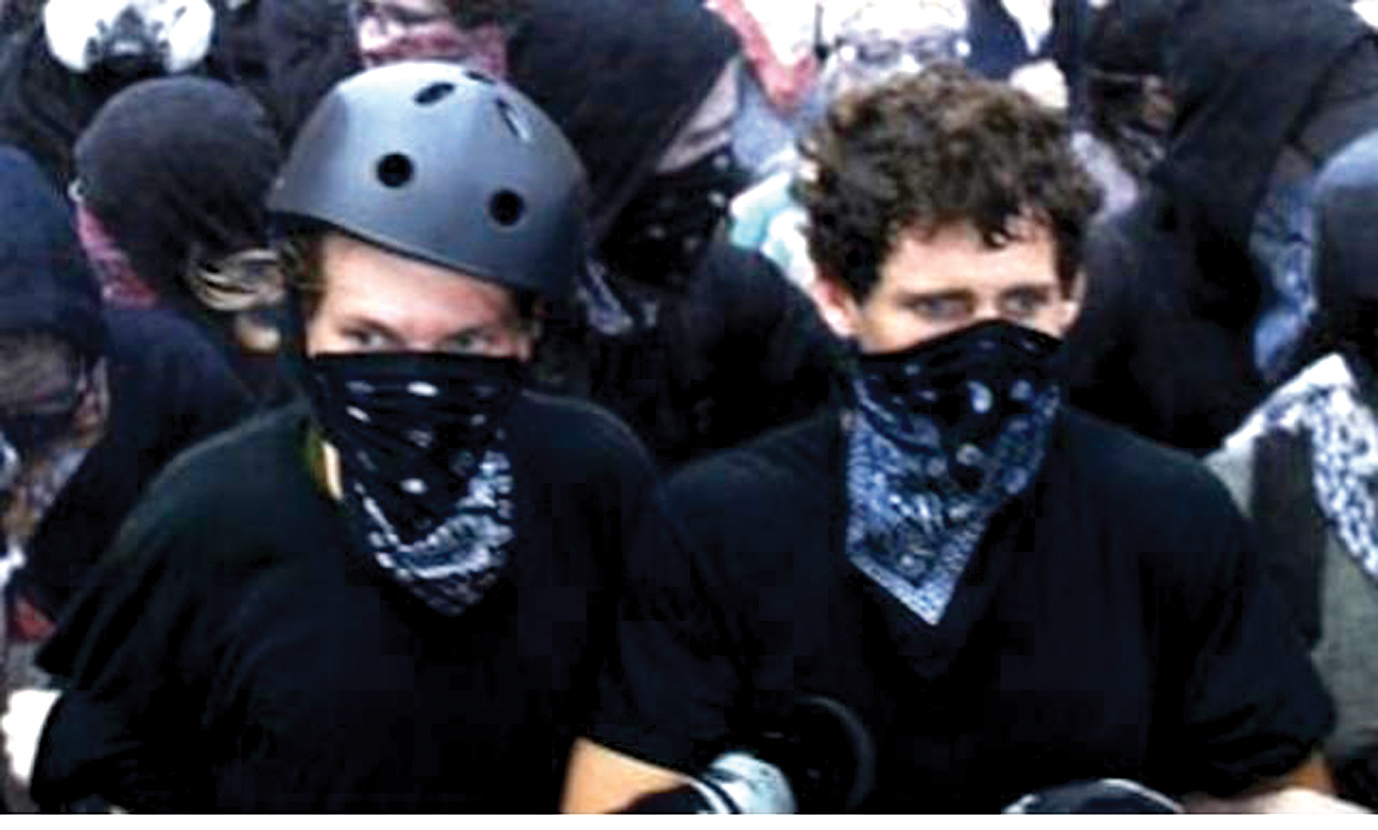
This week at Cinema Politica two films show fights against very different kinds of injustice. Sarabah is concerned with Senegalese rapper Sister Fa’s efforts to stop female genital mutilation in her home country. Better This World focuses on the legal troubles of two young men who claim to have been manipulated and coerced by the FBI. The subjects in both films possess an excess of passion for their cause, admirable in both cases. The difference, however, is focus.
Sister Fa’s passion is a pointed spear; David McKay and Bradley Crowder’s was explosive. In the end, their successes and failures hinged on their ability to harness and control their anger.
Better This World: This isn’t about justice… It’s about a winner and a loser.
St. Paul, MN: the 2008 Republican National Convention. John McCain and Sarah Palin accept the Grand Old Party’s nomination for the American presidency and vice-presidency to the cheers of thousands of zealous party supporters. Outside the arena, an even larger crowd gathered. For the previous four days, angry protesters had paralyzed the streets of the Twin Cities’ eastern sister.
Among those demonstrating were McKay and Crowder, close friends from Midland, TX who had made the trek up to Minnesota with a group of like-minded—or so they thought—activists.
What followed was pressure-induced radicalization resulting in the FBI arresting both men for making, and planning to use, Molotov cocktails.
The film picks up with both Crowder and McKay in jail, and deftly uses found footage—traffic cameras, home videos, FBI surveillance—to weave together the narrative that brought these two seemingly benign Texans to a federal penitentiary.
Better This World deals with two important issues. The first of these I will remain silent on, as divulging details would ruin an extremely well executed moment in the film. The second, however, is the much bigger question: how fair is federal prosecution in the United States?
The U.S. Department of Justice has around a 90 per cent success rate in court, and while this may seem like a product of excellent case choices and lawyers, Better This World suggests the deck is stacked heavily in their favour. Most cases never make it to court, because defendants so often accept plea deals. But as the film shows, defendants are effectively coerced into accepting pleas.
Crowder was offered a two year plea deal in which he had to drop charges of entrapment and admit to a degree of criminality he felt the evidence didn’t support. Truthfully, he wanted the truth laid bare in court; he wanted the whole story told. But to go to court was to accept, were he to lose, a minimum sentence of 10 to 12 years. The whole truth apparently carries a heavy burden in the U.S. justice system.
The film certainly paints McKay and Crowder as victims, and for good reason, but it also refuses to remove them from blame for their actions. Though they were manipulated, McKay and Crowder were angry and susceptible to suggestion. It’s a chilling lesson for all about the follies of unfocused rage, and how easily good intentions can lead to terrible consequences: a
thread picked up by Sarabah.
Sarabah: ‘For the health of our daughters, for hope in our lives.’
While Maria Luisa Gambale and Gloria Bremer’s Sarabah shares in the heartbreak seen in Better This World, it’s ultimately a hopeful film. Sister Fa, an award-winning Senegalese hip-hop artist, is the subject here, but not for her music. The artist, whose real name is Fatou Diatta, was a victim of one of the most barbaric practices existing in modern times: female genital mutilation. Decades later, Fa has returned to her home country and is putting forth an effort to combat the practice in Senegal.
Along the way, we see her deal with all shades of ignorance, from angry traditionalists oblivious to the realities of FGM, to traumatized schoolgirls who believe uncircumcised women are unclean.
The subject matter is difficult, to be sure, but too important to ignore. One of the key reasons this practice still exists has to do with taboo. It’s unacceptable to speak of FGM in Senegal, and the graphic details prevent many outsiders from tackling the issue. Sister Fa, however, has firsthand knowledge of the trauma implicit in the custom, and refuses to let it continue.
The most heartbreaking aspect of FGM in Senegal is that it’s conducted on young girls by their mothers. And this is not done with a hint of malice. In villages where walking around naked is the norm, to be uncircumcised is to be dirty, and to be dirty is to be an outcast. And there’s no hiding it. So mothers undertake this awful act out of love, a brutal irony unimaginable to women, and men, elsewhere in the world.
Sarabah is a rare issue film that’s nearly impossible to argue against. It does not call for policy change regarding grey areas like military action and oil mining, in which strong economic counterarguments exist. It’s a cut-and-dry example of right and wrong, of indoctrinated abuse, that has remained largely marginalized with activists and governments today.
The film should be required viewing, not only for its content, but because it’s a strong example of how art and music have the ability to open doors other languages cannot. In Sister Fa’s “Excision,” she says she thinks of these girls every day. We should too.
Better This World is showing on Nov. 18 at 7 p.m. and Sarabah shows on Nov. 21 at 7 p.m. Both screenings take place in H-110. For more information, go to www.cinemapolitica.org/concordia.




